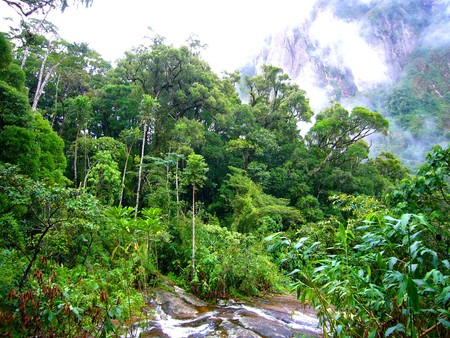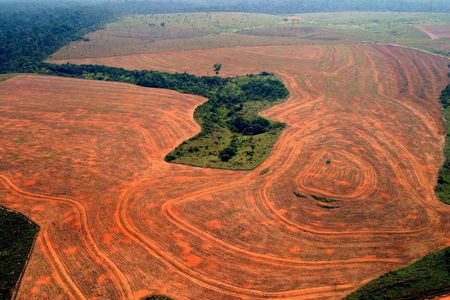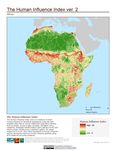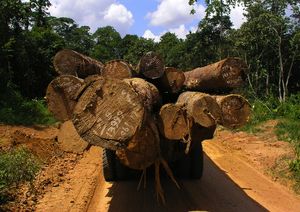14
UN MONDE EN SURSIS
A WORLD IN THE WAY OF EXTINCTION
.

" Lorsque le dernier arbre aura été abattu, la dernière rivière polluée, le dernier poisson pêché, les hommes s'apercevront que l'argent n'était pas comestible. "
" Only when the last tree has died, the last river poisoned and the last fish been caught, will we realize, we cannot eat money "
( Chef Indien )
Les forêts tropicales primaires sont en sursis. Chaque hectare qui disparait est une cicatrice de plus qui ne se refermera jamais : les forêts qui repoussent sur des zones détruites ou déja exploitées, sont des forêts secondaires avec des espèces invasives et une biodiversité extrèmement réduite. Dans moins de 200 ans il ne restera plus aucune forêt tropicale primaire sur la planète. Un poumon s'en ira et l'homme n'aura plus que ses yeux pour pleurer. Il pourra s'enrichir en paix.
Chaque année ce sont environ 14 millions d'hectares de forêts qui disparaissent de notre planète, un carré de 500m sur 500 toutes les minutes ...

Marojejy National Park, Madagascar


Tarsius spectrum, Spectral tarsier, Tangkoko NR, Indonesia
Primary tropical rainforests are in the way of extinction. Every hectare that disappear is one more scar that will never close. The secondary forests have invasive species and very low biodiversity. In less than 200 years there will be no more primary rainforest. A lung will be gone and man will cry. He will be able to grow rich in peace.
Every year, it's about 14 millions hectares of forests that disappear, a square of 1600 feet on 1600 each minute ...

Déforestation pour la culture de la canne à sucre, Amazonie, Brésil
Deforestation for Sugar cane industry, Brazilian Amazon
Photo Alberto cesar, Greenpeace
Les conséquences de la déforestation sont bien connues : la première est la mise en peril de nombreuses espèces animales et végétales souvent inconnues; la deuxième concerne la diminution d'absorption du dioxyde de carbone et la baisse de "création" d'oxygène; la troisième concerne l'érosion des sols et donc des crues, innondations et coulées de boues plus importantes; la quatrième est la stérilité des sols exploités; la cinquième concerne un dérèglement du climat au niveau mondial ( avancée de la désertification, hausse des températures,...); la sixième...
Global distribution of Original and current Rainforests
Distribution des Forêts Tropicales originelles et actuelles



Indice de l'impact humain, Human Influence Index
KKK
Consequences of deforestation are well known : the first is the disapearing of animal and plant species often unknown to science; the second is the decrease in the absorption of carbon cycle at the planet level; the third concerns the soils' erosion and so, the increase of floods and mud slides; the fourth is the barrenness of the exploited soils; the fifth is the increase in temperatures and the upset of global climate; the sixth is....


Hyla rufitela, La Selva BS, Costa Rica

Threatened Amphibians of the World, Lynx Edicions
Les forêts tropicales disparaissent à un rythme infernal principalement à cause de l'exploitation humaine: Mines d'Or en Guyane, Pétrole en Equateur, Minerais au Gabon, plantations de palmiers à huile à Borneo, plantations de canne à sucre au Brésil ... Au rythme actuel de la déforestation, on considère que dans 175 ans, c'est à dire moins de deux générations, il n'existera plus aucune forêt tropicale primaire sur notre planète ...
Tropical rainforests dissapear at an alarming pace mainly for human exploitation : Goldmines in Guyana, Oil Indutry in Ecuador, Ores in Gabon, Palm Oil plantations in Borneo, Sugar cane plantation in Brazil ... At the actual pace of deforestation, we consider that all the primary rainforests will be gone in less than 175 years meaning in less than two human générations...


Tropical Deforestation in Indonesia (Photo Thegeographer.co.uk)
Eulemur fulvus albifrons, White fronted lemur, Marojejy NP, Madagascar




/https%3A%2F%2Fstorage.canalblog.com%2F42%2F78%2F310105%2F62496359_o.jpg)
/https%3A%2F%2Fstorage.canalblog.com%2F98%2F27%2F310105%2F41124424_o.jpg)
/https%3A%2F%2Fstorage.canalblog.com%2F70%2F29%2F310105%2F33252499_o.jpg)
/https%3A%2F%2Fstorage.canalblog.com%2F80%2F82%2F310105%2F33164995_o.jpg)